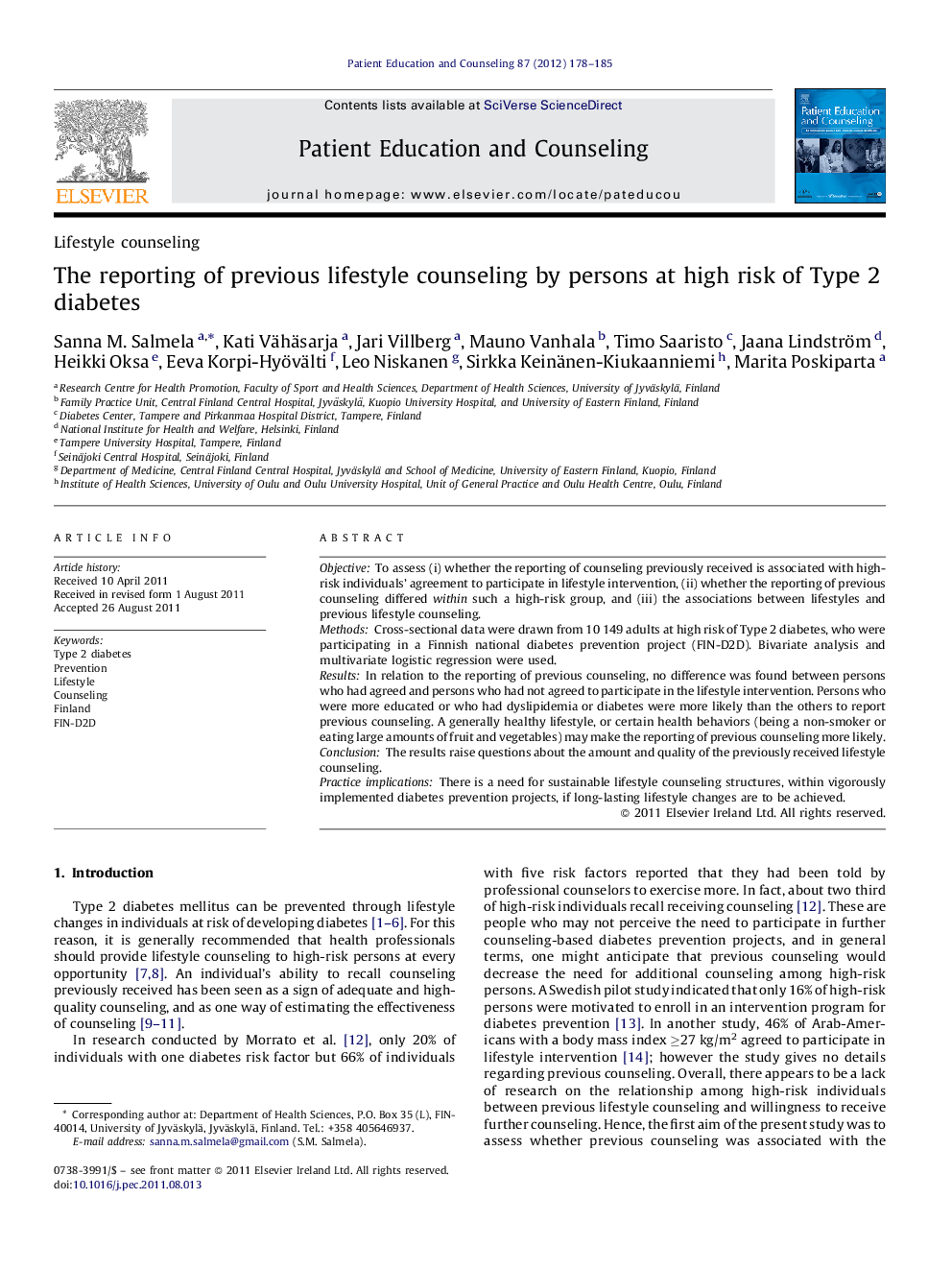| Article ID | Journal | Published Year | Pages | File Type |
|---|---|---|---|---|
| 3814471 | Patient Education and Counseling | 2012 | 8 Pages |
ObjectiveTo assess (i) whether the reporting of counseling previously received is associated with high-risk individuals’ agreement to participate in lifestyle intervention, (ii) whether the reporting of previous counseling differed within such a high-risk group, and (iii) the associations between lifestyles and previous lifestyle counseling.MethodsCross-sectional data were drawn from 10 149 adults at high risk of Type 2 diabetes, who were participating in a Finnish national diabetes prevention project (FIN-D2D). Bivariate analysis and multivariate logistic regression were used.ResultsIn relation to the reporting of previous counseling, no difference was found between persons who had agreed and persons who had not agreed to participate in the lifestyle intervention. Persons who were more educated or who had dyslipidemia or diabetes were more likely than the others to report previous counseling. A generally healthy lifestyle, or certain health behaviors (being a non-smoker or eating large amounts of fruit and vegetables) may make the reporting of previous counseling more likely.ConclusionThe results raise questions about the amount and quality of the previously received lifestyle counseling.Practice implicationsThere is a need for sustainable lifestyle counseling structures, within vigorously implemented diabetes prevention projects, if long-lasting lifestyle changes are to be achieved.
